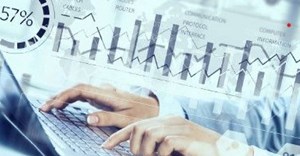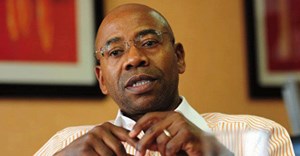#AfricaMonth
Subscribe & Follow
Trending

 Newspapers: ABC Q1 2024: The slow steady downward trickle continuesDanette Breitenbach
Newspapers: ABC Q1 2024: The slow steady downward trickle continuesDanette Breitenbach



Elections 2024
What economists do and their prominence in the public mind

While the main furore was over comments he made, which some interpreted to be racist, the qualifications needed to be an economist is an interesting, and quite separate, discussion.
The science of society
Economics is different to professions such as accounting or medicine, which have laws and professional bodies that define what qualifies you to use the title 'medical doctor' or 'chartered accountant'. The word 'economy' comes from the Greek word "okionomia", which means 'household management"'.
The term 'economist' became prevalent in the 19th century when it came to refer to people who study the economy. At that point, they didn't do degrees in economics; they tended instead to be philosophers concerned with 'political economy'. The idea of economics as a proper academic subject emerged after Alfred Marshall's textbook Principles of Economics was published in 1890. Economics departments at Harvard, Berkeley, Cambridge and the London School of Economics all opened their doors around 1900. Marshall's book was inspired by John Stuart Mill's Principles of Political Economy, which had, decades earlier, set out economics as a "science of society" interested in identifying "tendency laws" in economic systems.
Prominent university economics departments around the world still tend to think of their subject as a social science.
A typical research approach is to find data on some economic phenomenon and then propose a model that explains the causes of the phenomenon. Usually, the models are expressed in mathematical terms, although not necessarily. Through the process of publishing and peer review, models are assessed, criticised and often replaced with better ones until broad agreement is reached that the model captures a real feature of the economy.
To do such academic work, it is almost always the case that you need a PhD to start, although there is nothing in principle preventing anyone from being published in a peer-reviewed journal. The crowning glory for an economist is the Nobel Prize, although work by mathematicians, psychologists and political scientists have also picked up Nobel prizes when they have had a big effect on economics.
Commercial economists
Along the way, economists have drifted into the commercial world. Their skills are obviously useful - from helping firms determine optimal production and pricing strategies through to helping investors choose investments. This aspect of economics gained traction with the arrival of business schools, which began to be separated from economics departments in the 1950s.
SA is unusual in that the most prominent economists are these commercial ones, rather than their academic cousins. The ones we hear about most often tend to work on macroeconomic issues, such as inflation and exchange rates, and are employed by banks. These particular kinds of economists are often quoted in the media and indeed that often appears to be their main function. It is interesting that some banks' economics departments report to the marketing function of the bank rather than any core business line. They are pretty good at getting column inches, so much so that the average South African seems to think that this is what economics is all about. Their academic cousins seldom get any airtime.
Economists who work for banks tend to do a lot of forecasts, which are often provided as a free value-add to clients. I find a lot of the research sent to me by bank economists very useful; usually they show a nuanced understanding of policy and how it affects the economy.
But cynics often remark that such economists are really in the business of providing cover for business people who have to develop expectations around strategy. They provide a comfort blanket. When things go wrong, the forecasts can always be blamed. And there are plenty of academic studies showing the forecasts are, universally, wrong. And if that's what economists do, what does it matter what qualifications they have?
Source: Business Day
Source: I-Net Bridge

For more than two decades, I-Net Bridge has been one of South Africa’s preferred electronic providers of innovative solutions, data of the highest calibre, reliable platforms and excellent supporting systems. Our products include workstations, web applications and data feeds packaged with in-depth news and powerful analytical tools empowering clients to make meaningful decisions.
We pride ourselves on our wide variety of in-house skills, encompassing multiple platforms and applications. These skills enable us to not only function as a first class facility, but also design, implement and support all our client needs at a level that confirms I-Net Bridge a leader in its field.
Go to: http://www.inet.co.za









